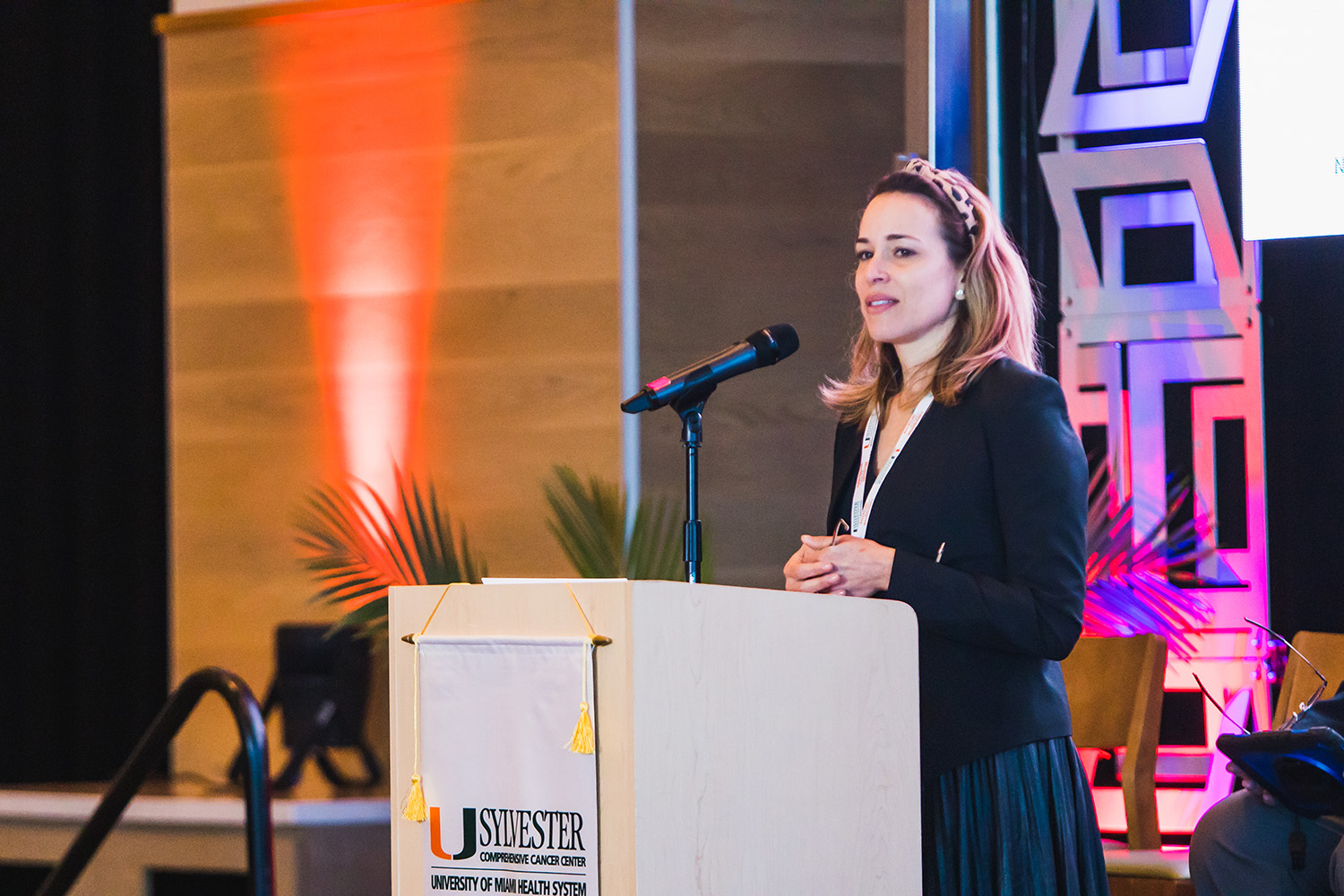Screening, prevention and research are vital for reducing the deadly toll of cancer on firefighters and their families, according to experts at the 2020 National Firefighter Cancer Symposium, hosted by Sylvester at Hard Rock Stadium in February.

More than 300 volunteer and professional firefighters attended the second annual national symposium organized through Sylvester’s Firefighter Cancer Initiative, a multidisciplinary team of scientists, clinicians and firefighters focused on cancer control and cancer prevention strategies.
“This symposium promotes discussion and collaboration of innovative cancer control ideas across stakeholder groups who might not necessarily meet each other,” said Alberto J. Caban-Martinez, D.O., Ph.D., M.P.H., assistant professor of public health sciences.
The symposium was held in conjunction with the Dolphins Cancer Challenge which raises funds for cancer research.
“While the American people love firefighters, the dollars available for research are very limited,” said Patrick Morrison, assistant to the general president of the International Association of Fire Fighters. “We really appreciate the work of the Sylvester researchers and we need to continue that support.”
Dr. Caban-Martinez said many of the sessions were on topics requested by firefighters, including a workshop on “Total Worker Health,” an occupational health and safety framework for policies, programs and practices that support worker well-being.
“Our Firefighter Cancer Initiative has been developing innovative curriculum specific to the U.S. Fire Service to promote cancer screening strategies in an integrated organizational-level approach,” he said.
At the symposium, David J. Lee, Ph.D., professor of public health sciences, discussed the Firefighter Cancer Initiative, and a medical panel of Sylvester oncologists gave an update on cancer screening procedures. Other sessions included the latest research on health promotion and intervention studies.
Cancer survivorship was another key topic at the symposium.
In this era of patient-centered and precision care medicine, I am thrilled that our cancer center is addressing the unique survivorship and psychosocial needs of our firefighter community,” said Frank J. Penedo, Ph.D., Sylvester Professor of Psychology and Medicine, associate director for Cancer Survivorship and Translational Behavioral Sciences; and director of the Cancer Survivorship Program. “Through our ongoing collaborations with cancer center experts and our firefighter community, we are developing tailored programs to tackle the challenges faced following a cancer diagnosis and treatment to improve health outcomes.
Natasha Schaefer Solle, R.N., Ph.D., research assistant professor of medicine, led a workshop that addressed the physical and emotional changes that often affect cancer survivors and family members. She urged attendees to visit and evaluate Sylvester’s Firefighter Cancer Survivorship online portal.
At the symposium, Brian McQueen, chair of the National Volunteer Fire Council, gave an emotional account of his personal battle with cancer after being diagnosed in 2014.
“Six years later, I still remember those weeks of radiation treatments in Manhattan,” said McQueen, a resident of Utica, N.Y. “Too many of us attend funerals for our colleagues who have died from cancer. Take the information you learn here back to your station and put these best practices into your daily routine. That’s how you can help your friends and families.”